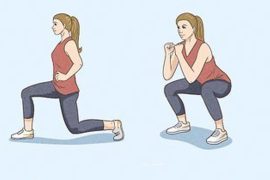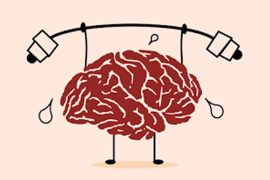The best time to work out largely depends on personal preferences, schedule, and fitness goals. Morning workouts can boost energy, improve mood, and enhance metabolism for the day ahead. They may also help with consistency, as completing a workout early in the day leaves less room for distractions. Afternoon and evening workouts can be effective for those who experience increased strength and performance later in the day, as the body is fully awake, and muscles are warmed up. Ultimately, the best time to exercise is when it fits into your routine, allowing for consistency, proper rest, and alignment with your fitness objectives.
Recent research has explored how the timing of exercise can influence fitness outcomes, suggesting that the optimal time to work out may vary based on individual goals and biological factors.
1. Morning Workouts:
Studies indicate that exercising in the morning, particularly in the early hours, may be beneficial for weight management. A study published in Obesity found that individuals who engaged in morning exercise experienced greater weight loss compared to those who exercised later in the day.
2. Evening Workouts:
Conversely, other research suggests that evening workouts can enhance performance, especially in strength and endurance. A study highlighted by MindBodyGreen noted that female participants who exercised between 6:30 to 8:30 p.m. showed improvements in upper-body strength and muscle growth.
3. Individual Variations:
It’s important to recognize that the optimal time for exercise can vary among individuals. Factors such as personal schedule, energy levels, and specific fitness goals play a significant role. For instance, some people may find they have more energy and perform better during evening workouts, while others may prefer morning sessions.
Benefits of exercising at different times of the day:
While studies provide insights into potential benefits of exercising at different times of the day, the most effective workout schedule is one that aligns with your personal lifestyle and goals. Consistency and finding a routine that you can maintain are crucial for achieving optimal fitness results.
- Evening Exercise and Cardiovascular Health: A study published in Diabetes Care found that individuals with obesity who engaged in the majority of their physical activity between 6 p.m. and midnight had a lower risk of heart disease and premature death.
- Morning Exercise and Weight Loss: Conversely, research indicates that morning workouts may be more effective for weight loss. A study highlighted by The Sun suggests that exercising for at least 150 minutes a week can significantly reduce the risk of developing chronic diseases, including aiding in weight management.
- Individual Variations: It’s important to recognize that the optimal time for exercise can vary among individuals. Factors such as personal schedule, energy levels, and specific fitness goals play a significant role. For instance, some people may find they have more energy and perform better during evening workouts, while others may prefer morning sessions.
While studies provide insights into potential benefits of exercising at different times of the day, the most effective workout schedule is one that aligns with your personal lifestyle and goals. Consistency and finding a routine that you can maintain are crucial for achieving optimal fitness results.
Disclaimer:
The information contained in this article is for educational and informational purposes only and is not intended as a health advice. We would ask you to consult a qualified professional or medical expert to gain additional knowledge before you choose to consume any product or perform any exercise.







